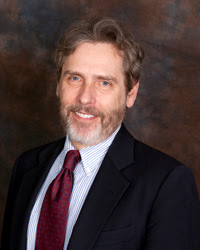The audience provided a standing ovation as the keynote speaker took the stage. “I hope I say something about democracy that unsettles you,” he said, dressed in his signature black and white suit with a scarf.
Dr. Cornel West spoke at the Charles E. Smith Center on Thursday for the University Writing Program’s forum on democracy and public argument. The forum was created to “contribute to a broader conversation for public debate on global society,” said Derek Malone-France, the executive director of the University Writing Program.
West’s lecture focused on the question ‘What does it mean to be human?’ and referred to many subjects, such as poetry, the Occupy Movement, Socrates and the upcoming presidential elections.
Referring to what society teaches youth about success, West commented that the primary goals seem to be “material toys, social status, a trophy husband or wife and to be well adjusted to injustice.” He proceeded to explain the importance of seeking the truth and paying attention to those who are suffering.
Defining poetry, he said that real poets “use critical imagination to try to make the world a better place.”
West emphasized how crucial it is to focus on the impact your life has on others.
Engaging with an audience diverse in age, gender, and ethnicity, West described the economy and the government as “survival of the slickest.” He called the recent bank bail out “hypocrisy” due to the discrepancy between the elite and the poor in the US.
“How many Wall Street employees have been investigated and arrested. Zero. How many Jamals and Latishas have been incarcerated. Hundreds and hundreds.”
As members of the audience roared with laughter and exclamations of agreement, West clarified his position. “I’m not anti-American. I’m anti-injustice in America,” he said.
The University Writings Program decided to organize the question and answer segment by randomly selecting audience members. A number of post cards with a pen were attached to the bottom of selected seats in the Smith Center. Those who had the lucky seat could write their question and pass the post card to an usher.
Responding to a question about the predominately white participants in the Occupy Movement, West described the movement as “magnificent and desperate.” He then explained that “40% of black children are poor and 15% of blacks are underemployed.” Due to this reality, West commented that “it is hard to find time to sleep in tents.” However, he explained that if blacks are asked about the concerns the Occupy Movement is raising, they think very highly of it. He added that the lack of participation also “signifies relative failure of black leadership who are not focused on poverty but obsessed with getting elected.”
“Last thing I want to see is a take over of the White House by mediocre, mean-spirited individuals,” said West responding to a question about supporting President Obama’s re-election. “I don’t support candidates, I support principles.”
Mentioning Dr. Martin Luther King Jr.’s portrait in the Oval Office, West said Obama must be authentic to what he is talking about if he wishes to uphold Dr. King’s legacy. “Respect, protect, but also correct,” he said.
West concluded his lecture with the last question, which referred to the contradiction within people who do not realize they are the problem. West explained that “all of us are part of the solution and the problem,” but it is up to us to choose which side we contribute more to. “Wrestling with the contradiction with us, the only thing that breaks it is the love of wisdom and justice.”














